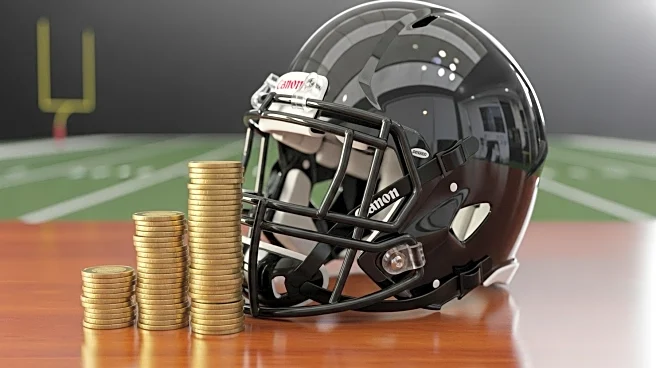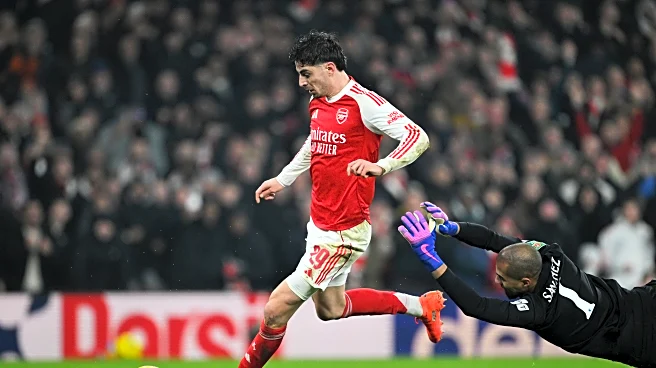What's Happening?
Oklahoma State coach Mike Gundy recently made headlines with his comments regarding Oregon Ducks quarterback Dante Moore. As the Cowboys prepare to face the Ducks, Gundy suggested that Oregon would need to invest significantly to retain Moore, given his potential and performance. Moore, who transferred from UCLA, has taken over as Oregon's starting quarterback following Dillon Gabriel's departure to the NFL. In his debut game of the season against Montana State, Moore completed 18 of 23 passes for 213 yards and three touchdowns. His current NIL valuation stands at $640,000, which, while substantial, is less than other top quarterbacks like Arch Manning and Carson Beck. Gundy's remarks have stirred discussions about the financial aspects of college sports, particularly in relation to NIL deals.
Why It's Important?
Gundy's comments underscore the growing influence of Name, Image, and Likeness (NIL) deals in college sports, which have become a critical factor in recruiting and retaining top talent. The financial implications of NIL agreements are reshaping the landscape of college athletics, with players like Moore becoming central figures in this evolving market. For Oregon, Moore's performance and potential make him a valuable asset, and the financial commitment to keep him could impact the team's future strategies and budget allocations. This situation highlights the broader trend of college athletes leveraging their marketability, which could lead to increased competition among universities to offer lucrative deals to attract and retain top players.
What's Next?
As Oregon continues its season, the focus will be on Moore's performance and the team's ability to capitalize on his potential. The Ducks are favored in their upcoming game against Oklahoma State, and a strong showing could further enhance Moore's value. Meanwhile, universities across the country will be closely monitoring the impact of NIL deals on player retention and recruitment. The outcome of Oregon's season and Moore's role in it could influence future NIL negotiations and strategies for both players and institutions. Additionally, Gundy's comments may prompt discussions among college sports stakeholders about the sustainability and fairness of current NIL practices.











